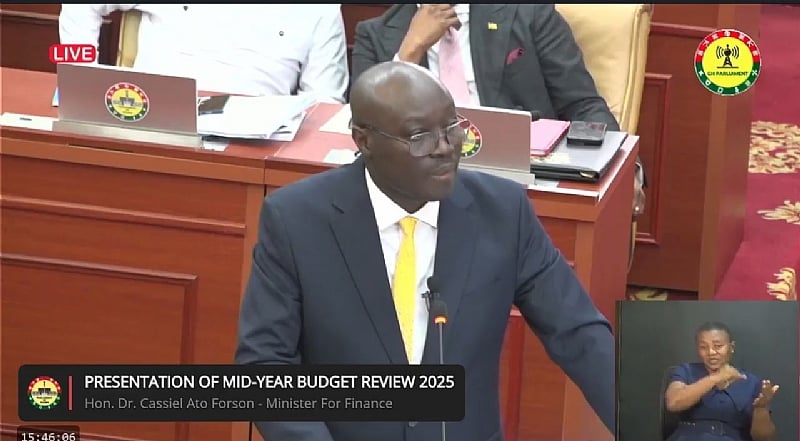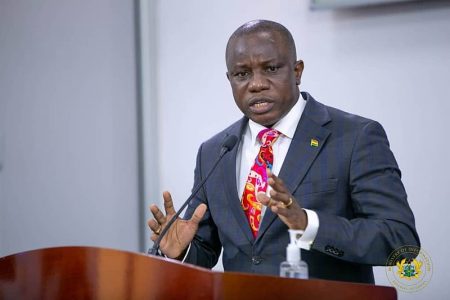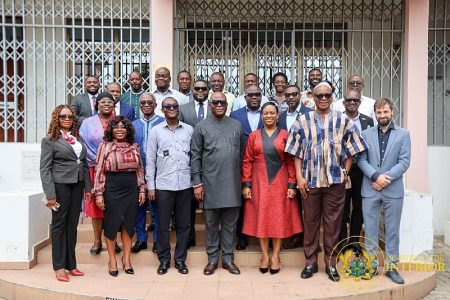Finance Minister Dr. Cassiel Ato Forson, in presenting the 2025 Mid-Year Budget Review, painted a stark picture of the energy sector inherited by the Mahama administration. He described it as being in “deep financial distress,” burdened by annual funding gaps exceeding $1.5 billion. This precarious financial situation, according to Dr. Forson, stemmed from a confluence of factors accumulated during the previous administration’s tenure. These included a significant backlog of legacy debts, power purchase agreements (PPAs) negotiated under unfavorable terms, persistent inefficiencies in revenue collection, and escalating operational costs. The cumulative effect of these issues, which were largely unaddressed by the previous government, created a rapidly escalating financial crisis within the energy sector, posing a substantial threat to the nation’s overall economic stability and energy security.
The magnitude of the financial shortfall, exceeding $1.5 billion annually, underscored the severity of the situation. Dr. Forson emphasized that this financial burden wasn’t merely an accounting issue but a systemic problem that jeopardized the nation’s energy security and placed the broader economy at risk. The increasing debt within the energy sector, a concern that had been flagged since 2023, had reached a critical point, demanding immediate and decisive action to prevent a complete financial collapse. The inherited challenges were not isolated incidents but rather represented structural weaknesses within the sector that required comprehensive reforms to address the root causes and prevent a recurrence of such a crisis.
In response to this inherited crisis, the Mahama administration initiated a series of aggressive reforms aimed at stabilizing the energy sector and setting it on a path towards sustainability. A central component of these reforms involved renegotiating existing PPAs, which were identified as a major contributor to the financial strain. The focus of these renegotiations was to eliminate or significantly reduce over-priced excess capacity charges, which had placed an unnecessary burden on the sector’s finances. By addressing these unfavorable contractual terms, the government aimed to reduce the sector’s operational costs and bring them in line with realistic market prices.
Beyond addressing the PPAs, the Mahama administration prioritized reforms aimed at improving the overall governance structure of the energy sector. This involved enhancing transparency and accountability across the energy value chain, promoting greater efficiency in operations, and fostering a more sustainable financial model. These governance reforms aimed to address the systemic issues that had allowed the sector’s finances to deteriorate, ensuring that future decisions were made with greater transparency and fiscal responsibility. The overarching goal was to create a more robust and resilient energy sector capable of withstanding future challenges and contributing to national development.
Dr. Forson emphasized that these reforms were not isolated measures but part of a broader strategic vision to reposition the energy sector as a key driver of economic growth. The aim was to transform the sector from a source of financial instability into a stable, efficient, and growth-enabling component of the national economy. This required a multi-pronged approach that addressed both the immediate financial challenges and the underlying structural weaknesses that had contributed to the crisis.
The Mahama administration’s commitment to these reforms, according to Dr. Forson, reflects a determination to learn from the past and ensure that the mistakes leading to the current crisis are not repeated. The focus is not merely on resolving the immediate financial difficulties but on establishing a sustainable foundation for the energy sector, ensuring its long-term viability and contribution to national development. This involves addressing the root causes of the financial distress, promoting transparency and accountability, and creating a regulatory environment that fosters responsible financial management within the sector. The ultimate goal is to transform the energy sector into a reliable and sustainable engine of economic growth and national prosperity.














